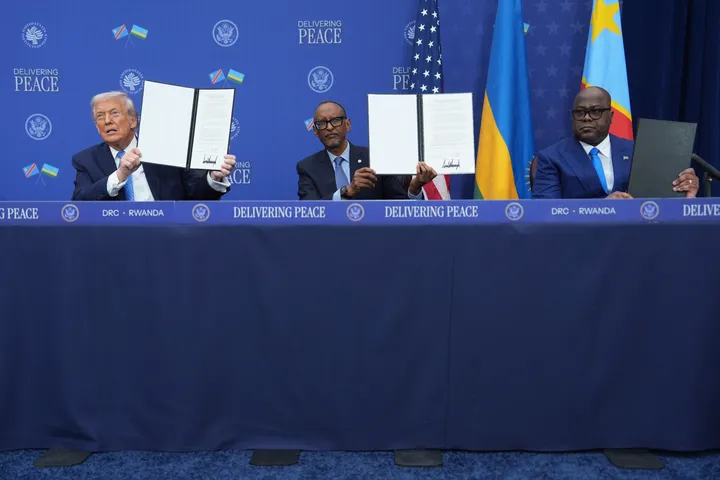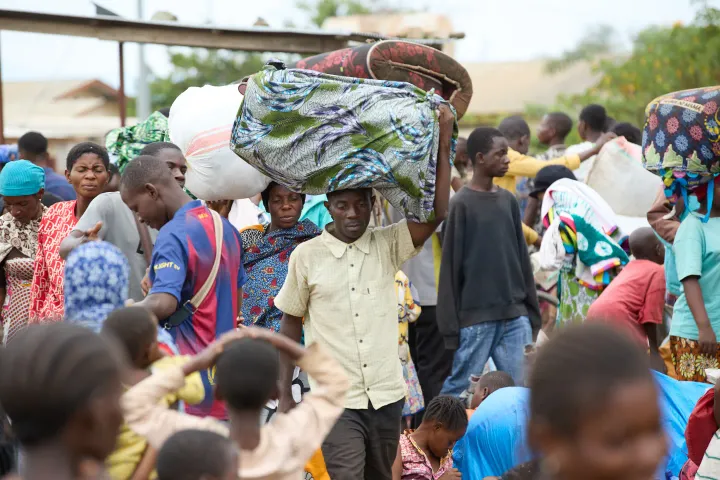By Kudra Maliro
The Government of the Democratic Republic of Congo (DRC) has rejected calls for direct talks with representatives of the M23 insurgent group.
The rebels had asked to engage the government in dialogue in order to restore normalcy in eastern part of the country, which is largely under control of the insurgents.
“We won’t hold talks with M23 rebels,” Tina Salama, the spokesperson of DRC President Felix Tshisekedi, told TRT Afrika on Friday.
“We’re asking them to lay down their weapons and withdraw from the areas they’re illegally occupying,” added Salama.
Luanda agreement
The DRC government says the M23 rebels will be confined to Mount Sabinyo in the northeast of Lake Kivu as the disarmament exercise continues.
“Foreigners who are part of the M23 rebel group are hereby directed to return to their countries of origin,” said Salama.
The DRC government says they won’t do anything outside an agreement it had signed with the insurgents in Angola’s capital, Luanda, in November 2022.
“We are sticking to the binding proposals of the Luanda agreement,” said Salama.
The M23 rebels had earlier this week called for direct talks with the government, saying they were interested in finding a “political and peaceful” solution to the longstanding conflict in eastern DRC.
'No intermediaries'
The rebels, through their spokesperson Lawrence Kanyuka, said in a statement that they were committed to regional peacekeeping efforts, so long as the DRC government welcomes their calls for direct talks.
“The government should ask its soldiers to refrain from encroaching on the areas we have occupied. Negotiations between us and the government must be done directly, and not through intermediaries,” said M23.
President Tshisekedi had, on April 13, declared that his administration “will not hold any discussions with leaders of the M23 armed group”.
The president said M23 leaders often use such meetings to gather intelligence and infiltrate the government.
“We are not interested in war with the government. All we are asking for is an honest dialogue amongst us as brothers of one motherland,” said M23, through its spokesperson Kanyuka.
Ban on negotiations with M23
In 2022, the Congolese parliament passed a law banning “all forms of negotiations with armed groups that use military-like means against the DRC”.
“If these people (M23) are indeed Congolese citizens as they are claiming, then they will accept to return to civilian life,” President Tshisekedi said in a press briefing in April.
More than 300 people have been killed by M23 rebels in eastern DRC, official records reveal.
The M23 insurgency was formed in April 2012, originating from the National Congress for the Defence of the People, a rebel group which fought the DRC government between 2006 and 2009.
Both groups claimed that the Congolese Tutsi and other ethnic communities in north and south Kivu were discriminated against.
























